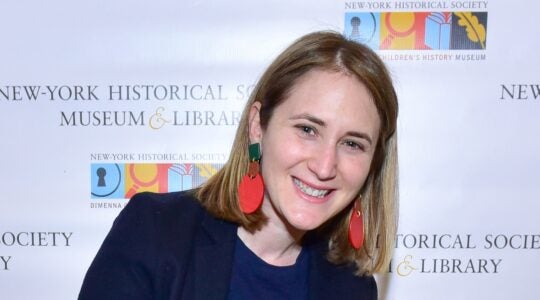Despite the lingering economic difficulties, the UJA-Federation of New York raised a total of $188 million in the fiscal year that ended June 30. This figure, which includes revenue from a variety of sources, represents a $7 million increase from the amount raised in 2010.
But the recession is still taking a toll on the federation’s Annual Campaign, which has remained largely flat during the past three years. In 2011, the annual campaign that ended June 30 brought in $137 million, up $1 million (less than 1 percent) from the previous year.
In addition to the annual campaign, UJA-Federation raised nearly $42 million in bequests and planned giving, and $9 million from special initiatives and capital funds.
“This remains a challenging environment,” John S. Ruskay, executive vice president and CEO of the UJA-Federation told The Jewish Week. “There are donors that simply can no longer give. Some are overleveraged or their income has been reduced.”
The UJA-Federation of New York is the largest federation within the North American Jewish federation system, and its annual campaign figures are watched closely by those in the Jewish communal world. The money raised by the UJA-Federation is allocated to more than 100 beneficiary agencies that provide social services and other assistance to more than 4.5 million people in New York, Israel and around the world.
Jewish federations have for more than a decade been struggling to maintain relevance at a time when collective giving has lost some of its appeal. The Jewish Federations of North America announced in April that its members had raised approximately $925 million altogether in 2010, a decrease of $13 million from what they had raised in 2009.
The UJA-Federation is a “unique expression of Jewish collective responsibility,” said Ruskay, but it is “challenged by a range of factors — a flat world, individuals’ desire to support institutions they can touch directly and the changing place of Israel” among other factors.
Still, the campaign results are encouraging, Ruskay said. “The great news is that these results reflect the fact that even though many are pressed, most feel blessed. Our donors recognize that they are among the most privileged Jews that have ever lived.”
To increase its donor base, the UJA-Federation has been experimenting with new approaches, particularly in the area of online philanthropy. The organization has seen a 15 percent increase in online giving, he said — 15 percent in both dollars raised and number of gifts. In addition to reaching out to the Jews in their 20s and 30s, the federation has also begun efforts to reach out to a variety of Sephardic communities, as well as continuing its work in the Russian-Jewish community.
Returning to the heady days of 2007, when the annual campaign brought in upwards of $150 million and the total amount raised was $290 million, is unlikely. But Ruskay says that he is cautiously optimistic about the future. “If the economy continues its slow but steady recovery, the sense of security of our donors and community will be reflected in our campaign results.”
Tamar@jewishweek.org
The New York Jewish Week brings you the stories behind the headlines, keeping you connected to Jewish life in New York. Help sustain the reporting you trust by donating today.




